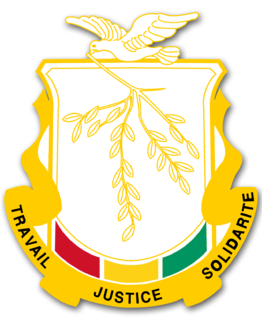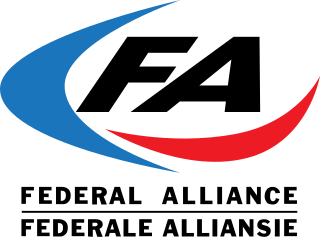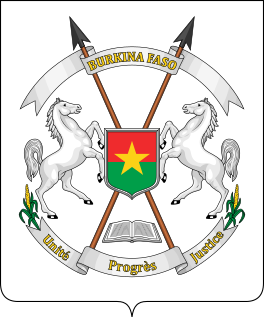
The Republic of South Africa is a parliamentary representative democratic republic. The President of South Africa serves both as head of state and as head of government. The President is elected by the National Assembly and must retain the confidence of the Assembly in order to remain in office. South Africans also elect provincial legislatures which govern each of the country's nine provinces.

The Democratic Party (DP) was the name of the South African political party now called the Democratic Alliance. Although the Democratic Party name dates from 1989, the party existed under other labels throughout the apartheid years, when it was the Parliamentary opposition to the ruling National Party's policies.

The National Assembly is the lower house of the Parliament of South Africa, located in Cape Town, Western Cape Province. It consists of four hundred members who are elected every five years using a party-list proportional representation system where half of the members are elected proportionally from 9 provincial lists and the remaining half from national lists so as to restore proportionality.

The unicameral National Assembly is the legislative body of the Republic of Cape Verde.

The unicameral Assemblée nationale or National Assembly is Guinea's legislative body. Since the country's birth in 1958, it has experienced political turmoil, and elections have been called at irregular intervals, and only since 1995 have they been more than the meaningless approval of a one-party state's slate of candidates. The number of seats has also fluctuated. It is currently at 114, with members selected by two different methods.

The Democratic Party is one of the two major contemporary political parties in the United States, along with the Republican Party. Tracing its heritage back to Thomas Jefferson and James Madison's Democratic-Republican Party, the modern-day Democratic Party was founded around 1828 by supporters of Andrew Jackson, making it the world's oldest active political party.
The Louisiana Democratic Party is the affiliate of the national Democratic Party of the United States in the state of Louisiana.

The Missouri Democratic Party is the affiliate of the United States Democratic Party in the U.S. state of Missouri. The party Chairman is Jean Peters Baker, who has been served in that position since 2018.

The Federal Alliance was a small South African political party that contested the South African general election in 1999. The party was led by business magnate Louis Luyt, and founded in 1998. They later joined the Democratic Party and the New National Party to form the Democratic Alliance but eventually broke away. The party did not contest the general election in 2004, instead fielding two candidates to the Gauteng Provincial Legislature on the DA's electoral lists. The FA gained these two seats in 2005 when the MPLs defected during the floor crossing window. This soured its relationship with the DA and ended all co-operation between the two parties.

Parliamentary elections were held in Cameroon on 1 March 1992. They were first multi-party elections for the National Assembly since 1964, although they were boycotted by the Social Democratic Front and the Cameroon Democratic Union. The result was a victory for the ruling Cameroon People's Democratic Movement, which won 88 of the 180 seats. Voter turnout was 60.7%.

General elections were held in Ivory Coast on 27 November 1960 to elect a President and National Assembly. Under the constitution enacted that year, the country was officially a one-party state with the Democratic Party of Côte d'Ivoire – African Democratic Rally (PDCI-RDA) as the sole legal party. Its leader, Félix Houphouët-Boigny, was automatically elected to a five-year term as president and unanimously confirmed in office via a referendum. A single list of PDCI-RDA candidates won all 70 seats in the National Assembly. Voter turnout was 95.9% in the parliamentary election and 98.8% in the presidential election.

General elections were held in Ivory Coast on 7 November 1965 to elect a President and National Assembly. At the time the country was a one-party state with the Democratic Party of Côte d'Ivoire – African Democratic Rally (PDCI-RDA) as the sole legal party. Its leader Félix Houphouët-Boigny was elected President unopposed, whilst the PDCI-RDA won all 85 seats in the National Assembly. Voter turnout was 99.6%.

General elections were held in Ivory Coast on 29 November 1970 to elect a President and National Assembly. At the time the country was a one-party state with the Democratic Party of Côte d'Ivoire – African Democratic Rally (PDCI-RDA) as the sole legal party. Its leader Félix Houphouët-Boigny was elected President unopposed, whilst in the National Assembly election, a list of 100 PDCI-RDA candidates for the 100 seats was presented to the electorate for approval. Voter turnout was reported to be 98.9% in the parliamentary election and 99.2% in the presidential election.

General elections were held in Ivory Coast on 16 November 1975 to elect a President and National Assembly. At the time the country was a one-party state with the Democratic Party of Côte d'Ivoire – African Democratic Rally (PDCI-RDA) as the sole legal party. Its leader Félix Houphouët-Boigny was elected President unopposed, whilst in the National Assembly election the PDCI-RDA won all 120 seats. Voter turnout was reported to be 99.3% in the parliamentary election and 99.8% in the presidential election.

Presidential elections were held in Ivory Coast on 12 October 1980, the first time a presidential election had been held separately to National Assembly elections. At the time the country was a one-party state with the Democratic Party of Côte d'Ivoire – African Democratic Rally as the sole legal party. Its leader, long-term President Félix Houphouët-Boigny was the only candidate, and was re-elected unopposed. Voter turnout was 82.3%.

Parliamentary elections were held in Ivory Coast on 25 November 1990, the first since the restoration of multi-party democracy earlier in the year. Although 17 of the 25 legalised parties ran in the election, nearly half of the 490 candidates were from the former sole legal party, the Democratic Party of Côte d'Ivoire – African Democratic Rally (PDCI). The PDCI won a landslide victory, taking 163 of 175 seats on 71.7 percent of the vote. Only two other parties got into the legislature, winning just 12 seats between them. Voter turnout was reported to be around 40%.

Parliamentary elections were held in the Republic of Upper Volta on 30 April 1978. They followed a constitutional referendum the previous year, which came about as a result of the military coup in 1974. Eight parties and 367 candidates contested the election.

The 1952 United States presidential election in Mississippi took place on November 4, 1952, as part of the United States presidential election of 1952.














